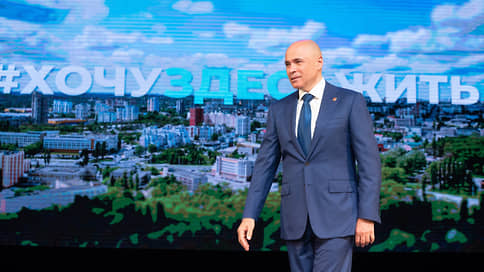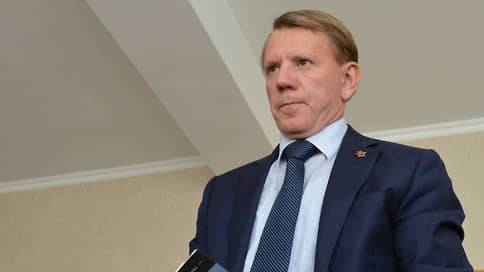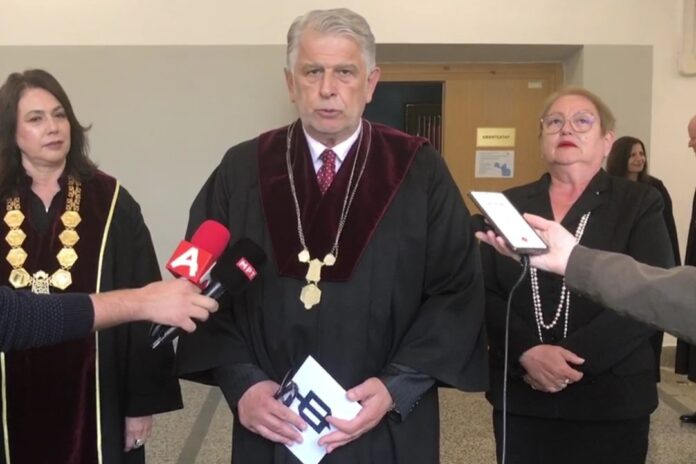The salaries of Russian governors were equated with deputy prime ministers

President Vladimir Putin equated the salaries of Russian governors with the monetary reward of deputy prime ministers of the federal government. The corresponding decree signed on April 1 will enter into force on January 1, 2026. By this decision, the head of state actually continues at the regional level the reform of the system of remuneration of civil servants carried out by the Government of the Russian Federation in 2019–2021.
Decree Signed « in order to streamline the remuneration of persons replacing the state position of the highest official of the constituent entity of the Russian Federation. » For them, as follows from the document, a “monetary reward will be established, which includes a monthly monetary reward, monetary encouragement and quarterly monetary incentive, in the amount provided for the deputy chairman of the Government of the Russian Federation.” The payment of these amounts is assigned to the management of the Presidential Affairs and will be made from the federal budget.
Recall that the principle of equating salaries with payments received by members of the federal government is already applied in the State Duma and the Federation Council. The salary of ordinary parliamentarians corresponds to the monetary content of the minister, and the chairmen of both chambers receive a salary at the premiere level.
The publication of information on the income and property of deputies and officials was suspended since 2023 by the presidential decree for the “period of its own and until the release of relevant regulatory legal acts”, but some governors do this on a voluntary basis. For example, the head of the Lipetsk region Igor Artamonov In 2024 he reported on an income of 45.9 million rubles. (for 2023), and his colleagues Gleb Nikitin (Nizhny Novgorod region) and Vladimir Solodov (Kamchatka Territory) a year earlier declared 4.6 million and 6.9 million rubles, respectively.
In general, the ratio of governor and deputy salaries can be judged by their declarations for 2021, published in the spring of 2022. Then, according to Kommersant, the heads of regions earned on average 13.2 million rubles. per year (1.1 million rubles per month), the most wealthy of them was the Moscow Region Governor Andrey Vorobyov (Annual income of 253.9 million rubles), and the head of Kalmykia is the lowest paid Batu Khasikov (1.3 million rubles).
The average annual income of the deputy chairman of the Government of the Russian Federation in 2021 amounted to 66.4 million rubles, and their income was located between 16.9 million at Victoria Abramchenko and 392.6 million rubles. Yuri Trutnev.
It should be noted that the declarations of “record holders” include not only salaries, but also income from deposits, the sale of real estate and other extra -budgetary sources.
The presidential decree on the “binding” of governor salaries for Deputy Prime Minister de facto marks the release of tariff reform of 2019–2021 outside the government. When determining the level of remuneration of the heads of the constituent entities of the Russian Federation, the Kremlin, in fact, suggested not inventing the bicycle, but to use the already reformed and successfully used by the White House system of remuneration of civil servants.
In 2020, we recall, the “anti-crisis” consolidation by the Mikhail Mishustin team of all budget funds that were previously at the disposal of ministries and departments, under the management of the government, for the formation of a financial reserve to combat Covid-19, created an opportunity to unify the wage system in the central devices of federal executive bodies. By the beginning of 2022, the tariff nets were unified in them, salaries were significantly increased, and the ratio of salaries and bonuses (in 2019 it was 40/60) changed to 80/20 to eliminate the possibility of arbitrariness in relation to employees. In parallel, the government reduced 10% of civil servants (largely due to the abolition of unnecessary accounting after the centralization of their functions in the Federal Treasury; See “Kommersant” dated October 21, 2020), and the money saved was aimed at raising the salaries of remaining employees.
We also note that the current presidential decree is echoing with the recent decision of the Government to expand the reform of the government to the territorial divisions of the federal departments (see “Kommersant” dated November 11, 2024). According to the approved plans, abbreviations and restructuring are coming in these structures, and the salaries of officials and officials in the constituent entities of the Russian Federation can be gradually close to a single grid.




/s3/static.nrc.nl/images/gn4/stripped/data133024837-1cfc4c.jpg|https://images.nrc.nl/JTTOZ3N-h2NmvmdPIN9BOMn3vlY=/1920x/filters:no_upscale()/s3/static.nrc.nl/images/gn4/stripped/data133024837-1cfc4c.jpg|https://images.nrc.nl/DmQsR5VYB9-Fftb1_UvAm2hcyJs=/5760x/filters:no_upscale()/s3/static.nrc.nl/images/gn4/stripped/data133024837-1cfc4c.jpg)

